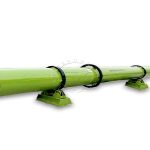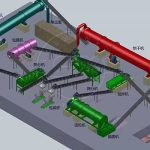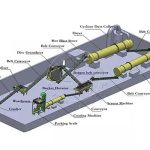Why organic fertilizers should replace chemical fertilizers? In our impression, some chemical fertilizers, urea, and phosphate fertilizers have been applied in the fields! There are also people who directly apply animal manure to the fields. During the harvest, the yield increases every year. In the early days, the yield per 666 square meters was 250-300 kg, and now it is 500 kg. Chemical fertilizers must have contributed a lot, but why should they replace chemical fertilizers now?
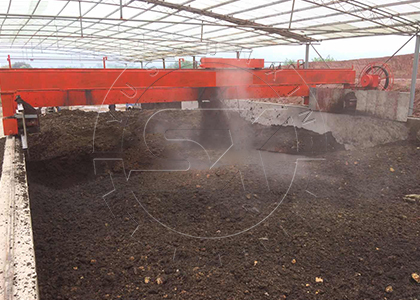
Fertilizers that contain one or several nutrient elements needed for the growth of crops. Fertilizers that contain only one nutrient element that can be marked are called unit fertilizers, such as nitrogen fertilizer, phosphorus fertilizer, potassium fertilizer, and secondary macroelement fertilizers and trace element fertilizers. Chemical fertilizers that contain two or three of the three nutritional elements nitrogen, phosphorus, and potassium and whose content can be indicated are called compound fertilizers or mixed fertilizers. The solubility of the active components of a fertilizer in water is usually a measure of the effectiveness of a fertilizer. Grade is the main indicator of fertilizer quality, which refers to the percentage of effective nutritional elements or their oxides in fertilizer products, such as: nitrogen, phosphorus, potassium, calcium, sodium, manganese, sulfur, boron, copper, iron, molybdenum, zinc percentage content.

The main raw material of organic fertilizer comes from animal and plant waste. The organic fertilizer produced after microbial fermentation eliminates toxic and harmful substances in the production process and is rich in a large number of beneficial substances, a variety of organic acids, peptides and nitrogen. Rich nutrients such as phosphorus, potassium, etc., can not only provide comprehensive nutrition for crops, but also have a longer fertilizer effect, and can effectively increase the organic matter content of the soil, effectively improve the soil, and promote the reproduction of microorganisms. It is the best choice for the production of green food main ingredient.
From the above brief introduction, we can see the difference between the two fertilizers. The effect of chemical fertilizers is quick and direct, but long-term application will bring certain chemical reactions (acidification, hardening, etc.) to our land. Organic fertilizers have relatively comprehensive nutrients and long-lasting fertilizer effects, which can improve farmland. Due to the cost of organic fertilizers, there is no way to completely replace the application of chemical fertilizers, but the popularization of organic fertilizers is imperative.
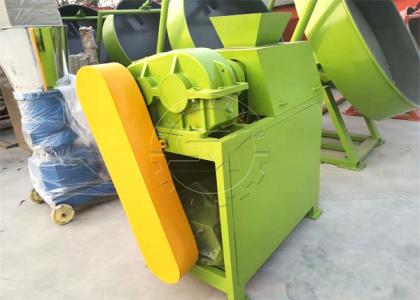
The output of organic fertilizers has always been a problem, mainly because of the source of raw materials. The raw materials of organic fertilizers generally come from the surroundings of the manufacturers, such as places with large-scale breeding enterprises. If the raw material is too far away from the manufacturer, it will increase a lot of transportation costs. The consumption of organic fertilizer itself is relatively large during the production period, and the entire production process has to go through fermentation, crushing, granulation, screening, drying and other processes, and the cost is much higher than that of chemical fertilizers. The equipment used is also more complicated. SX Organic fertilizer fermentation turning machine, mixer, semi-wet material pulverizer, organic fertilizer granulator, organic fertilizer screening machine, drying and cooling machine, packaging machine, and the link of the conveyor , the technology is also more rigorous than the production of chemical fertilizers.
Error: Contact form not found.

